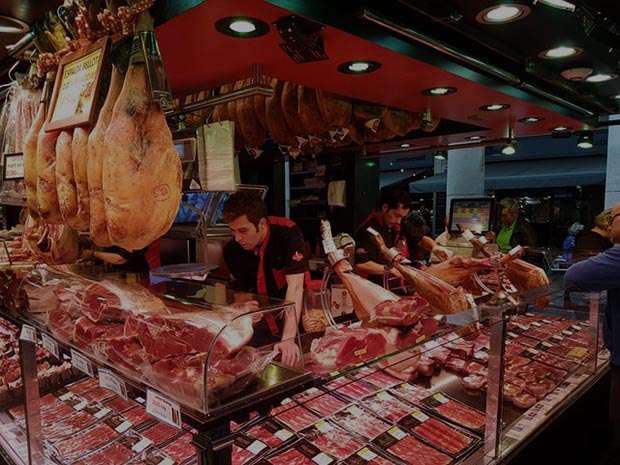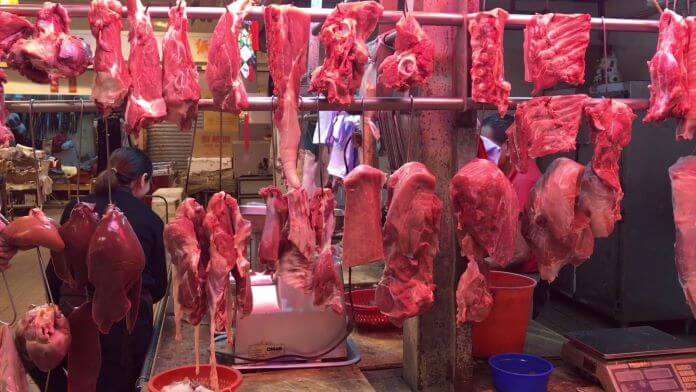Does your neighborhood depend on butcher shops and meat markets to get their daily protein? Starting a butcher shop will be a great idea for you. More and more people are now seeking an alternative to the big box stores when it comes to shopping for groceries. They want another means of buying their bacon rather than buying from the same place they buy their t-shirts.
So, opening a butcher shop in your neighborhood with the right planning can put you at the center of your community’s map while fulfilling consumer’s cravings for a responsible and sustainable source of protein. If you are planning to open a butcher shop, here are some steps to help you through.
Table of Contents
How To Start A Butcher Shop?
Let’s learn about “How to start a butcher shop” in detail:

#1: Create your brand’s identity and design a logo
Branding helps a business successful. So you can’t neglect the role of branding when setting up your butcher shop and looking to be successful. Your logo will represent the core values of your brand so you can afford to fumble around with its design. Your logo has a way of influencing your customers and convince them to choose you over your competitors.
So, set your brand rolling with a nicely designed logo that will appeal to your customers. That’s is the first key to opening a successful butcher shop.
#2: Write a good business plan
Before you finally open your shop to the public, you need to be sure you have a solid plan on the ground. Writing a good and well-detailed business plan will help you prioritize your goals and strategize on how to overcome potential problems ahead.
Your business plan should range between 30 to 60 pages and should consist of market research analysis, financial information, competitive analysis, pricing, your sales strategy, and various forecasts for the future. Your business plan should also include risks and potential problems that may come during the development of the business. In short, your business plan is the all in all of your meat selling business.
#3: Define your market
Not all communities and markets will support a butcher shop. So, before starting out, you need to conduct demographic research to make sure you are doing the right thing. You may not be able to compete with national chains when it comes to prices, so your target market will likely be the people in the community. Therefore, you must be sure these people are interested in shopping locally and have enough money to spend on your added services.
If you think the people will patronize you more if you could offer them what they couldn’t get at a supermarket, go for it. Some people will be looking for the knowledge and expertise that only a local butcher can provide because of his intimacy with the food he or she prepares. That means you must be ready to give relevant suggestions to customers looking to try something new. All of these will help you calve a sweet market for yourself.
#4: Choose a good location
Location is key to the success of any business, but this is especially true for a meat selling business. Most people will buy from you when they see you. So choose a location on a busy road with lots of daily traffic. It will make more sense if it’s a location convenient for commuters on their way home from work.
However, don’t forget it has to be a location that is easily accessible for delivery trucks to get to you. If it’s difficult for your food and equipment suppliers to reach you with their trucks, you are going to be having a hard time stocking supplies.
#5: Decide on your inventory and connect with suppliers
Delivering quality meat is crucial to the success of your business. To run a successful butcher shop, you need to build a quality relationship with your suppliers. Your choice of supplier will depend on your goals – whether you want farm-fresh specialty meats or a wide selection from a national supplier.
The inventory and cost of each supplier will also influence your choice. In the bid to get you started, some suppliers will even provide you with branding, free products, or even machinery. Having a smooth relationship with your vendors will mean a lot to the success of your butcher shop.
#6: Hire reliable staff
Having people around you to help will make running the business much easier. Your employees will help you serve your customers while you concentrate enough time on building the business. If you don’t have enough money to hire full-time employees, you can go for part-time employees. It will still make a huge difference to your business.
However, when hiring employees to help in your butcher shop, remember to consider the average pay in your area. That will prevent you from overpaying or underpaying your staff.
#7: Get the right equipment
Remember, butchering is a craft, so you can run a butcher shop without having the right tools. Meat market shop also involves lots of sharp objects that need protection. Some butcher equipment and tools you will likely have to get are:
- Meat slicer
- Quality butcher knives and a sharpener
- Scale
- Tables, carts, and counters
- Grinder and other processing machines
- Refrigerators and freezers
- Protective gloves and guards
- Film wrappers
- Everyday supplies like plastic wrap, soap, and trays
#8: Make your butcher shop a legal entity
Now that you have everything in place; a solid plan, perfect location, right equipment, the next thing is to do a little paperwork. You will need to obtain a number of licenses and permits before opening your shop to the public. A few of them will be specific to your status as a food service establishment.
To learn about what permits and licenses you will need, the U.S Small Business Administration is a good place to look. Your local chamber of commerce and health department should also be able to tell you what requirements you need to become a legal entity in your local government. To be on the good side of the law as you run your business, plan on getting these permits and licenses before opening your shop.
#9: Market your butcher shop
This is the last thing to do. That is marketing and advertising your meat selling business. Hand an attention-grabbing sign above the entrance of your shop. Use sidewalk signs too. Take advantage of social media to promote your butcher shop. Plus, if you run a big butcher shop, you can sponsor culinary bloggers on Instagram and YouTube. Also, don’t forget to register your shop on Google My Business. It will help bring more people in your locality to your store.
You may also be interested in other business ideas:
















